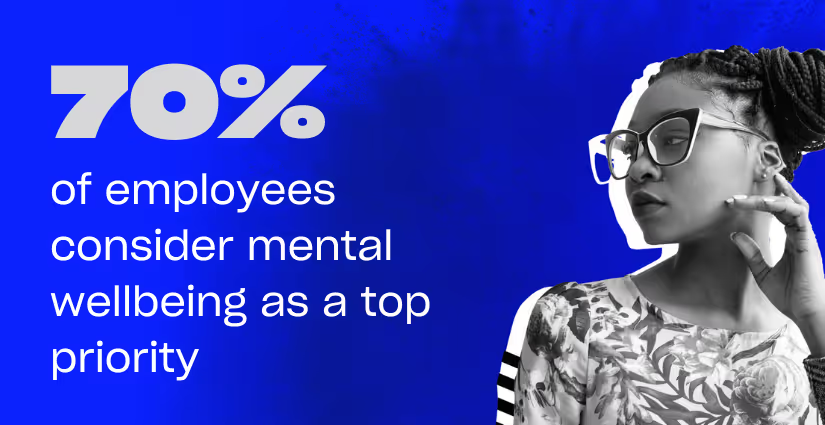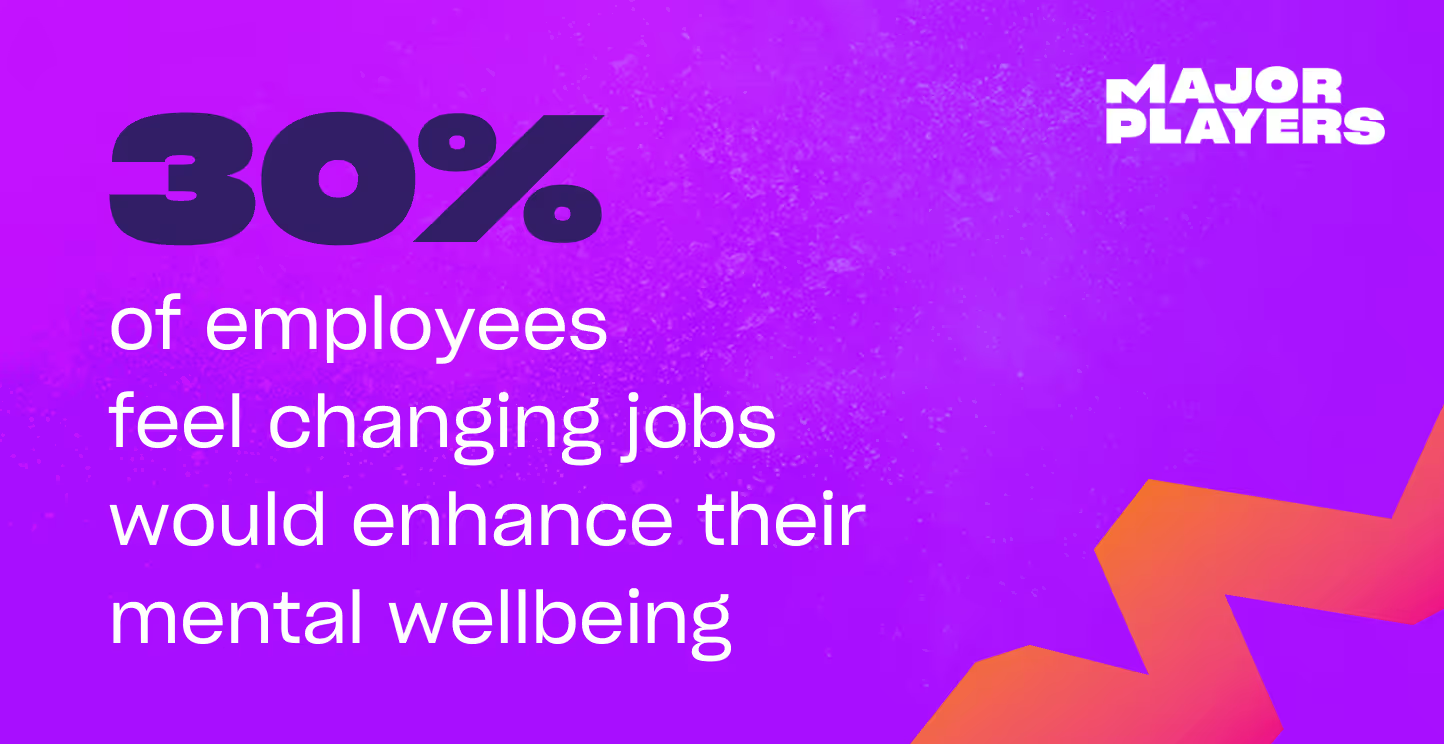As we recognise Mental Health Awareness Week 2024, it’s imperative to consider the significant role work can play on our mental wellbeing. Over the last few years, we have all had to adapt to live in the ‘never normal’, a phrase coined by Peter Hinssen – a new reality where continued geopolitical turmoil, economic turbulence, environmental challenges, and technological advancements, are not merely momentary disruptions but persistent aspects of our daily lives.
This adaption has meant that priorities have shifted and how we work, the importance of work in our lives, and what we even mean by work, continues to transform daily. With the workplace continuing to evolve at a rapid pace, it’s important that employers and managers help create a mentally healthy and positive workplace.
According to our recently published Salary Census 2024, 11% of the Creative Industries identify with having a mental health condition. Our report also highlights that 70% of employees consider mental wellbeing support as important when considering their current or next role. For context, this is the first time that mental health has appeared so high in respondents’ priorities – however, only 12% feel like they received substantial support from their employer in the last 12 months.

Alarmingly, 30% believe that switching jobs would enhance their mental wellbeing, and a further 34% were unsure about the impact of such a change. These stats underscore the importance of implementing and strengthening policies that support mental health, which not only creates a more inclusive, productive, and healthy workplace, but also is essential for modern workplaces wanting to attract, engage and retain top talent.

Employers should explore a wide-ranging number of support options, from prevention to intervention. Our charity partner, Mind, and Mental Health at Work have come up with a framework that can help organisations put in place the key actions needed to support better mental health outcomes for employees.
One such outcome is development people manager’s skills – something highlighted in our 2024 Census. A report from the Chartered Management Institute (CMI), revealed that 82% of managers had not undergone any formal training, and therefore had become “accidental managers”. This lack of formal training and support often leads to ineffective management practices that negatively affect employee engagement, productivity and ultimately retention.
Good people management can help manage and prevent stress which can be linked to common mental health conditions such as anxiety and depression. Mind and the CIPD have created a People Managers Guide to Mental Health, containing information, practical advice and templates to help managers to facilitate conversations about stress and poor mental health.
Other considerations around supporting employees include:
- Deploying mental health first aiders within the organisations, who are qualified to deal with situations that arise within the workplace.
- Signposting to EAP programmes or external support networks where employees can seek additional advice if needed including Mind, Samaritans, Campaign Against Living Miserably (CALM).
- Regularly review workloads and put in place initiatives that support a work-life balance.
- Promote awareness of mental health in the workplace and reduce the stigma and common myths with facts and data.
- Offer flexible working arrangements that be adjusted or those who need additional support.
For further insights on mental wellbeing in the Creative Industries, then download our 2024 Salary Census here. Alternatively, if you’re looking to improve mental health in the workplace, then explore Mind’s plethora of resources here.










